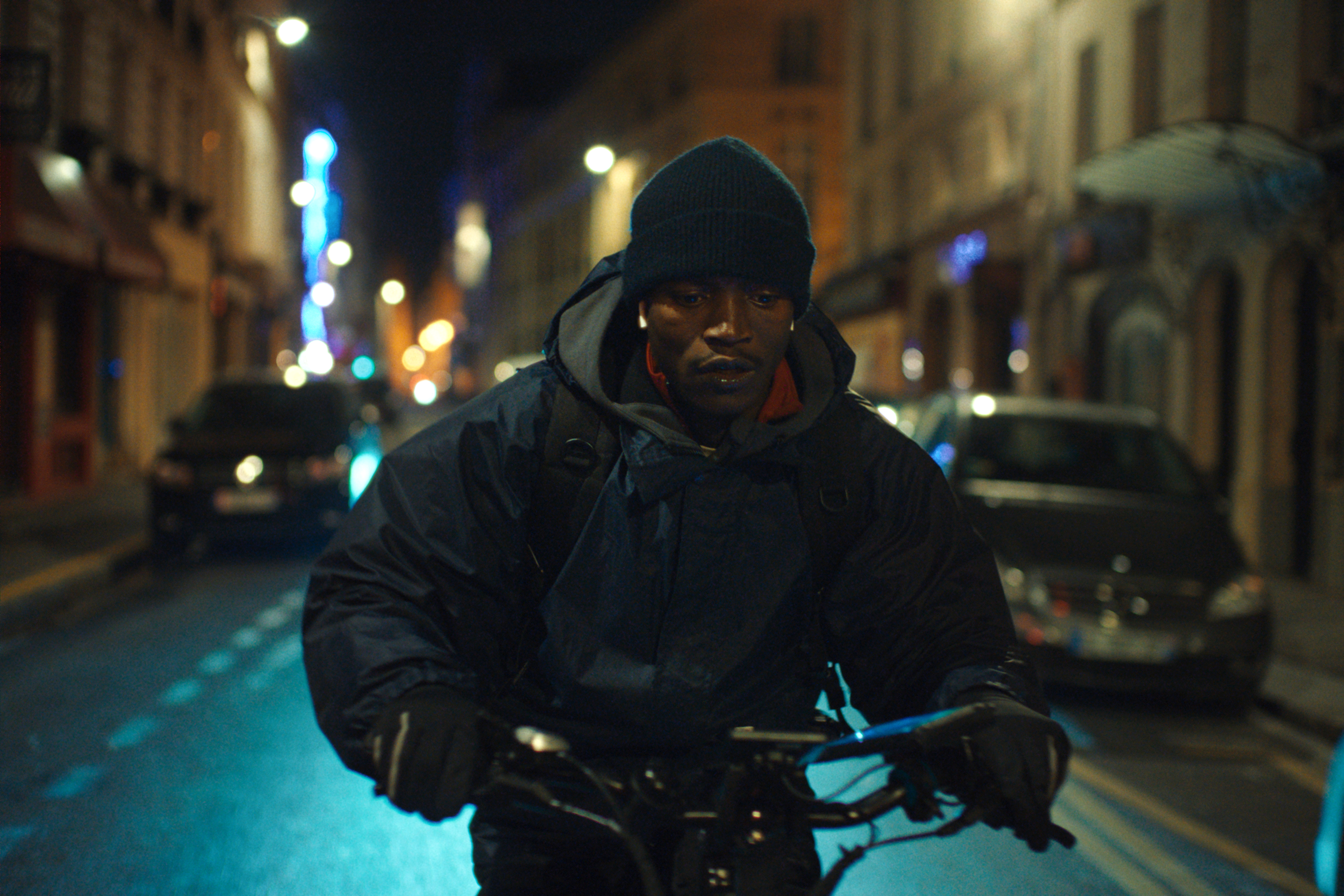The tense but tender story of a criminal dad who reunites and/or runs off with his child at a crucial point in both of their lives, Nick Rowland’s “She Rides Shotgun” is the kind of movie you’ve seen so many times before in one form (“Paper Moon”) or another (“Leave No Trace”) that it really just lives or dies on whether it gets the characters right.
In this case, the well-trafficked road to perdition can be rather bumpy at times, and it’s prone to long detours where a straight line would have been more effective. It’s easy to forgive the occasional pothole or wrong turn when you care this much about the man behind the wheel — and, of course, about the little girl sitting in the passenger seat beside him.
The man is Nate McClusky (“Kingsman” and “Carry-On” star Taron Egerton, body shredded and head shaved), and he’s just been released from maximum-security prison to find that a white supremacist gang called Aryan Steel has murdered his ex-wife and her new husband; we never learn much about whatever Nate did to piss them off, but it was bad enough for the group to put a nationwide “greenlight” on him, which authorizes every Nazi in the country to erase him and everyone he cares about. Nate’s 10-year-old daughter Polly (richly emotive and eminently believable child actor Ana Sophia Heger) would have been their first target, but she was at school when the skinheads attacked, and Nate — peeling into the parking lot in his dead ex’s car — manages to get there before the bad guys do.
And so the absent dad and his deeply traumatized daughter make a break for the Mexican border, the two of them blazing a trail across the American Southwest with the cops on their tail — they assume Nate is responsible for the killings — and the Nazis lurking around every corner. It’s immediately apparent that Nate and Polly can’t trust anyone but each other, but even that won’t come easily to a little girl who’s only ever known her father as a dark shadow in the corner of her mind (she calls the police as soon as she can). “I’m not a monster,” Nate feels compelled to insist during their first conversation, but he can’t bring himself to say that he isn’t a bad guy.
For all of the impressively well-staged shootouts, car chases, and gas station robberies that follow, it should go without saying that everything in this movie only matters so far as it affects Nate’s efforts to convince Polly that he’s not a total lowlife. What makes “She Rides Shotgun” more compelling than its synopsis, however, is how fiercely it holds onto the fact that it’s so much harder for Nate to convince himself of the same thing.
Adapting Jordan Harper’s 2017 pageturner of the same name, “The Night House” screenwriters Ben Collins and Luke Piotrowski might struggle to enliven the overextended subplot about a stone-faced cop (“Succession” alum Rob Yang) who offers Nate his freedom in exchange for taking down New Mexico’s Nazi meth kingpin (the always wonderful John Carroll Lynch, playing a merry butcher known as “The God of Slabtown”), but their emotionally lucid script makes a full meal of the many scenes between Nate and Polly. If the dialogue has a tendency to cheat toward prescriptiveness (“These days, just staying alive is an act of moral compromise,” someone declares), Nate’s vivid desperation smoothes over all of the film’s most pointed moments to make up for lost time.
It’s mentioned — with a soft touch — that Nate was led down a dark path by following in his older brother’s footsteps, and “She Rides Shotgun” is refreshingly uninterested in whatever masculine ideals might stop him from empowering his kid to blaze her own trail. Nate doesn’t want Polly to pay for his mistakes, but even more than that, he wants her to be at peace with the vulnerability of being a person in this world (“You gotta feel weak to get strong,” he tells her). This movie’s refusal to treat Polly like a burden — like she isn’t someone who Nate has been absolutely dying to raise — allows it to skip past the “begrudging” part of their dynamic and go deeper into the good stuff.
Egerton’s poignantly clenched performance aches with the pent-up frustration of a parent desperate to create something positive out of their own deficiencies, and even the “fun,” obligatory scenes where Nate teaches Polly how to survive outside the law — how to beat a Nazi in the knees with a baseball bat, or to be the lookout during a smash-and-grab — are tinged with the regret of having to bond like this. But neither the long shadow of loss nor The Lord of Slabtown can fully diminish the mutual joy that Nate and Polly get from being fugitives together. “She Rides Shotgun” gains the brunt of its horsepower from the errant traces of happiness that Rowland allows his characters to soak in as Nick dyes Polly’s hair, or Polly shows Nick her math skills.
It helps a great deal that Heger’s performance is much better modulated than Blanck Mass’ pretty but suffocatingly overbearing score, and that her fear, resolve, and adolescent confusion are balanced in a way that allows all but the film’s tropiest moments to seem fundamentally believable. (The rugged New Mexico locations contribute to that credibility, as does Wyatt Garfield’s gritty cinematography.) As is clear from the very first scene, and made all the more so by the very last, “She Rides Shotgun” is Polly’s movie at its core, and Heger’s face — a detailed portrait of love and loss, its colors all the more radiant by how they run together when she cries — is expressive enough to make it a movie worth watching even when it feels like one we’ve already seen a number of times before.
Grade: B-
Lionsgate will release “She Rides Shotgun” in theaters on Friday, August 1.
Want to stay up to date on IndieWire’s film reviews and critical thoughts? Subscribe here to our newly launched newsletter, In Review by David Ehrlich, in which our Chief Film Critic and Head Reviews Editor rounds up the best new reviews and streaming picks along with some exclusive musings — all only available to subscribers.



